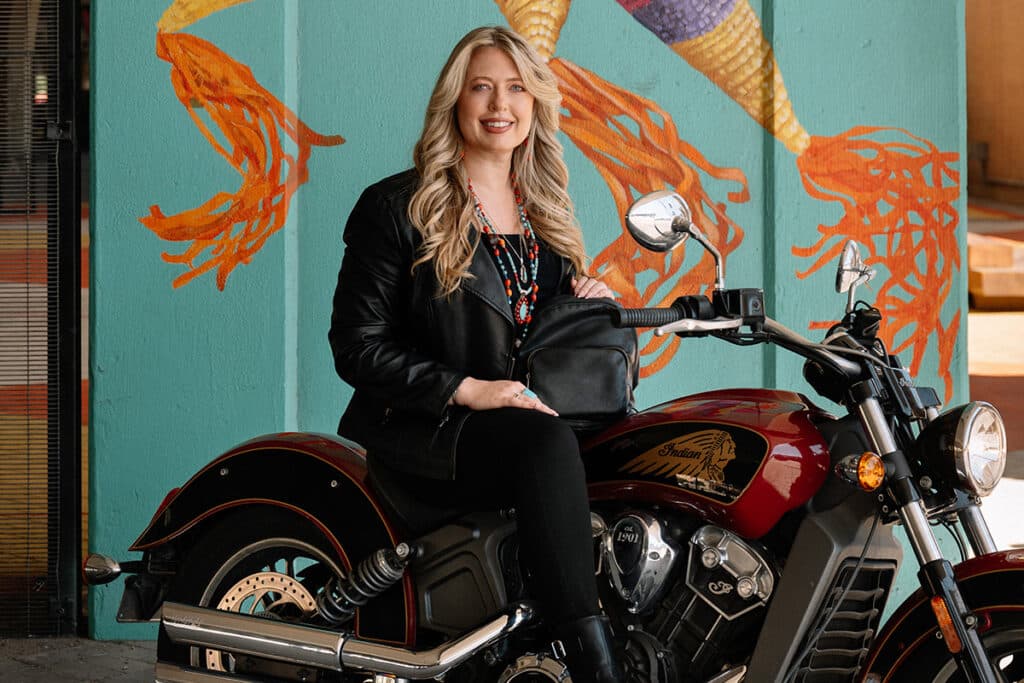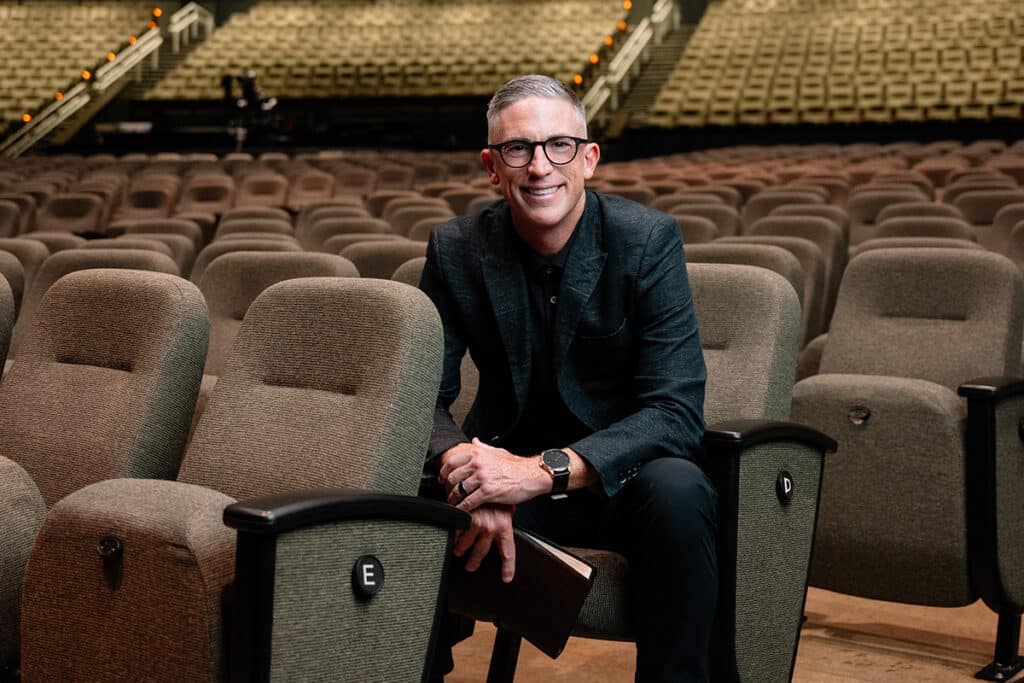At Stone Oak Methodist Hospital, Svetlana Descamps isn’t a doctor, an administrator nor yet a registered nurse, but she’s a star. As she walks through the hospital’s corridors, giving a visitor a tour, staff in different departments smile when they see her approaching. “When are you coming back to work with us?” asks a nurse in the neonatal unit. “You couldn’t have a better tour guide,” says another in the Clinical Decision Unit.
Descamps, a certified nursing assistant (CNA), has worked at the hospital since 2009. During the past two years, she has been a member of a resource team, serving wherever she is needed. “You need to be flexible,” she says, “since you don’t know where you’ll be working tomorrow. It has been good experience; I’ve learned a lot and now I can work anywhere.” Descamps can prove it: She has a stack of comment cards from staff and patients and their families, thanking her for her willingness to work extra shifts and for her thoughtfulness in dealing with people. “Svetlana is like a beautiful little Energizer bunny,” writes one co-worker, praising her for the consistent high quality of her work during long hours at the hospital. Typically, Descamps works 12-hour shifts four days a week. If she has a favorite department, it’s intensive care, since patients there are the most in need of care. Her duties include feeding and cleaning patients, monitoring and recording their vital signs, testing blood-glucose levels, changing surgical dressings and doing patient education and advocacy. “I like having a lot to do,” she says. “It makes the days go by so quickly.” One of the best parts of her job, she says, “is seeing patients walk out of here with their families, not so long after they were so sick.”
Sometimes patients under stress can be difficult, even rude to caregivers. “I understand that they’re upset, and I tell them so,” she says. “I try to be nice and kind to everyone. I took this job to do my best. I don’t have to like everyone, but I have to take good care of them anyway and make them more comfortable. Usually, they will start to be a little nicer.”
Though health care is not her first career, Descamps is sure she has found her calling, or maybe it found her long ago. Her maternal grandmother, of German ancestry from Ukraine by way of Poland, was a traditional healer. Growing up in South Russia, where the family had moved after World War II, Descamps sometimes observed her grandmother with people who sought her help. With a combination of folk remedies, a sympathetic ear and a comforting touch, the older woman did seem to get some beneficial results: “When I was 10 or 12, she told me, ‘You have this power, too.’ At the time, I thought it was just a superstition, but now I believe there was something in it.” A CNA since 2004, Descamps has completed a six-month pre-nursing course and is planning to enroll in a nursing program at San Antonio College with the eventual goal of becoming an RN. Always good in math and science, she earned an associate’s degree in computer programming and a bachelor’s in business management in her native Russia although she was more interested in medical or nursing school. Professional school, however, “cost too much and took too long,” she says. Her mother, a chef, and her father, a soldier, didn’t have the resources to help her, so she decided on studies that would help her find a job as soon as possible. By the time she had worked her way through business studies at Moscow State University, Descamps was older than the typical age to marry for women in her country, and she was helping her mother, who was widowed unexpectedly at age 42. “I had my work and my family, but I was a little lonely,” she says. One day a friend told her she was leaving the country to marry an American man — a doctor — she had met online. “She was so excited,” says Decamps. “She said, ‘Why don’t you try it? Maybe you can meet someone, too.’”
Russian women, says Descamps, had heard that American men were more considerate to their wives than Russian men. So she, too, signed up with an Internet matchmaking agency, but waited for nearly two years to reply to any of the American men interested in meeting her. “I wanted to meet someone who would be nice to me,” she says, “who would see me as an equal partner, building a life and a family together.” Eventually she met and married an American engineer, who came to Russia to court her before bringing her to live in Michigan. With limited English proficiency at first, “I kept my eyes and ears open and listened to the TV and radio all day long,” she says. “I kept looking up words in the dictionary so I could understand more.” She found a job in a store, where her English improved, and in her spare time often visited the public library. “I started (reading) kids’ books and worked my way up,” she says. She also took the opportunity to have conversations with some of the library’s elderly regular patrons. “That was a great experience,” she says. “You meet smart people in a library, and older people have seen and done so much they can tell you about.” With her English language skills “about 50-percent better” than when she first came to the United States, she found a job as a home health aide, assisting visiting nurses with the care of seriously ill homebound patients. Following her husband’s career to Colorado and Florida, she became a CNA and began working in nursing homes and hospitals, where she found she loved the variety and the importance of the work done by the health care teams of which she was a part.
After moving to San Antonio a few years ago, she decided she wanted to go back to work and applied at Stone Oak Methodist. “The interviewer told me that, ‘As a new hospital, we are looking for excellence. We need to find the right people. Do you think you could be one of them?’” The challenge sounded good to Descamps, who had spent most of her adult life striving to better herself. “I said, ‘I think so. That’s what I want.’ The interviewer asked me when I could start, and that was it.” While she and her husband are no longer together, she and her daughter, Katrina, 14, live near the hospital where Descamps usually works from 6:30 a.m. to 8 p.m. “Sometimes we don’t see each other from the goodbye kiss until I check on her when she’s in bed sleeping,” she says. While mother and daughter don’t have much quality time together during Descamps’ workweek, they spend her days off together, going to the library, exploring downtown, shopping or watching movies together. Though they don’t have pets, Katrina makes up for it by volunteering with a family friend at a pet adoption center.
Because of her daughter’s maturity, Descamps feels confident about taking on the extra work of nursing studies. She expects it will take her two years or less to become an RN, taking two courses each semester. She has seen coworkers try to take three courses at a time, but worries that a heavy load could lead to exhaustion. “I don’t want to miss anything (I’ll be studying),” she says. “This is for my profession.” After eight years in the health care field, she knows she is making the right move. “It’s not just about the money, it’s about feelings,” she says. “(Becoming a nurse) is my dream because I will be able to do so much more to help people.” She hopes she will be able to stay at Stone Oak Methodist after she completes her training. “When I first came to work here, it felt like coming home,” she says. “Now, this is my home. This is my family.”





One Response
4.5